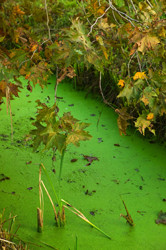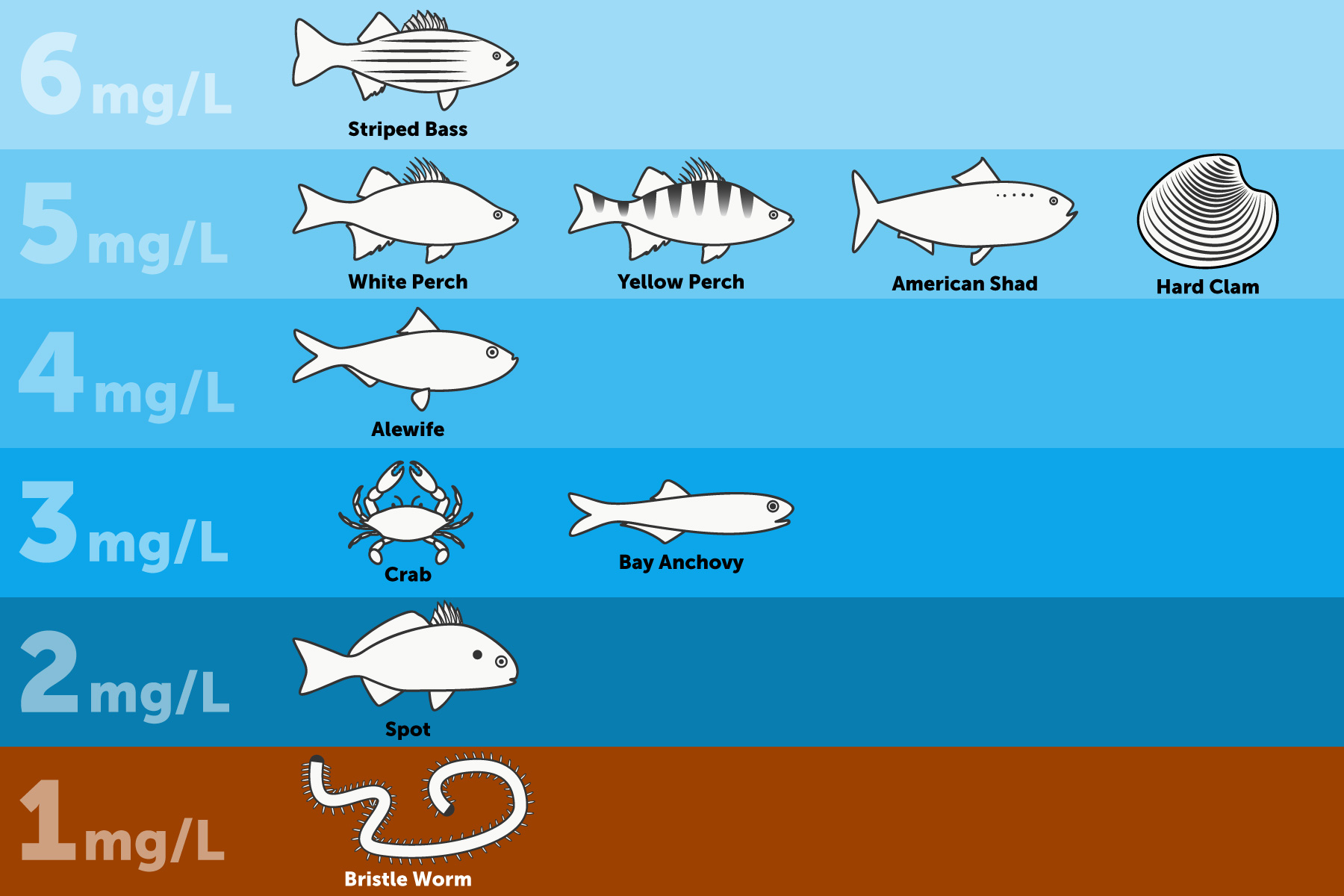Describe the Effect of Oxygen Depletion on the Aquatic Ecosystem
A threat to biodiversity. The growth and reproduction of microorganisms reduce the dissolved oxygen content of the water body.

The Interactive Effects Of Stratospheric Ozone Depletion Uv Radiation And Climate Change On Aquatic Ecosystems Photochemical Photobiological Sciences Rsc Publishing Doi 10 1039 C8pp90062k
However oxygen availability in these systems is threatened by global warming and excessive input of nutrients such as from agriculture and wastewaters known as eutrophication.

. Thus excess organic material in lakes and rivers can cause eutrophic conditions which is an oxygen-deficient situation that can cause a water body to die. The resulting dead fish and other aquatic species degrade the water quality and cause unpleasant odors. Marine life depends on the dissolved oxygen for survival and its absence may negatively impact aquatic life.
When the dissolve oxygen reaches hypoxic levels the animal and plant species under the water such as shrimp fish and other aquatic biota suffocate to death. The First set of aquarium was taken having capacity of 20 ltr followed by addition of. Bacteria in water can consume oxygen as organic matter decays.
Water pollution results in the death of smaller fishes mollusks bugs insects and their larvae. Excessive nutrients such as nitrogen and phosphorus have devastating effects on coastal marine ecosystems by causing algal blooms that deplete oxygen in the water killing marine life. The direct effects of hypoxia include fish kills especially the death of fish that need high levels of dissolved.
This reduces biodiversity given the interdependence that exists among members of a given ecosystem. Oxygen dissolves in water at very low concentrations. Depletion of dissolved oxygen in the water body.
Ocean oxygen depletion also known as hypoxia is the result of a decrease in the soluble oxygen concentration of ocean water. When fertilizer is introduced into aquatic ecosystems it can cause phytoplankton to multiply rapidly. As the top layer of water cools from either a heavy rain storm or a cold front the water then mixes or turnsover with the deep oxygen deficient water and a pond wide oxygen depletion can occur and harm fish populations possibly even causing die-offs.
There are a number of different factors. Frequent fish kill incidents occur and many desirable fish species are removed from the water body. Dissolved oxygen is probably the single most important water quality factor that pond managers need to understand.
If the dissolved oxygen drops below 3 ppm or mgL in an aquatic ecosystem. Oxygen depletion or hypoxia is a common effect of eutrophication in water. Large increases in the number of phytoplankton can cause oxygen depletion in the water leading to suffocation of the organisms in the water.
As the season progresses the cool water near the bottom becomes stagnant and depleted of oxygen. One notable effect of water pollution is depopulation. Like all ecosystems on Earth supporting animal and plant life aquatic ecosystems need oxygen.
According to new data dead. Dissolved oxygen concentrations. Since many of the living organisms found in these water bodies will be affected by the sharp temperature changes.
Low DO can also be a factor in fish kills where a large number of fish in one area of water die off. Oxygen depletion in aquatic ecosystems. Freshwater ecosystems prosper when dissolved oxygen levels are above 6 ppm or mgL as shown in the figure below.
In the process of decay the oxygen in the water is used up and this leads to low levels of dissolved oxygen in the water. Primarily the adverse effects of eutrophication on aquatic bodies include a decrease in biodiversity increase in toxicity of the water body and change in species dominance. The aesthetic value of the water body diminishes significantly.
Large increases in the number of phytoplankton can cause oxygen depletion in the water leading to suffocation of the organisms in the water. The destruction and depopulation of these creatures unbalance the ecosystem resulting in. Without sufficient dissolved oxygen in surface water fish and other aquatic species suffocate.
Depletion of dissolved oxygen in the water body. T he effect of water pollution is more on aquatic life because their existence depends on water and when there is any disturbance in their ecosystem the impact is maximum on them. Many different factors can affect dissolved oxygen DO levels.
Available oxygen resists the ability of fish to perform at maximum levels and increases physiological stress and expenditure of energy to meet oxygen demand 1 60 Effect of waste water effluent on fishes at different concentrations. The treatment of this water becomes difficult. Most of waters oxygen comes from the atmosphere which is in a constant state of transfusion with the waters surface.
When the algae and seagrass die they decay. Fish mussels and other aquatic organisms are susceptible to large scale population kills. Fertilizer run off can negatively impact aquatic ecosystems.
This in turn can kill fish crabs oysters and other aquatic animals. Fertilizer run off can negatively impact aquatic ecosystems. Nutrients come from a variety of different sources.
The populations of shellfish and harvestable fish are lowered. In polluted water due to abundant growth of algae the oxygen content becomes lesser causing the death of fishes and other organisms. In extreme cases the anaerobic conditions encourage the growth of bacteria that produces toxins that are deadly to marine mammals and birds.
Eutrophication of Water Bodies. Our atmosphere is 20 oxygen or 200000 ppm but seldom will a pond have more than 10 ppm oxygen dissolved in its water. When fertilizer is introduced into aquatic ecosystems it can cause phytoplankton to multiply rapidly.
These are the integral component of the food chain of the aquatic habitat.

Aquatic Ecosystem Metabolism As A Tool In Environmental Management Jankowski 2021 Wires Water Wiley Online Library

Oxygen Depletion In Aquatic Ecosystems Hypox Project Results In Brief Fp7 Cordis European Commission

Comments
Post a Comment